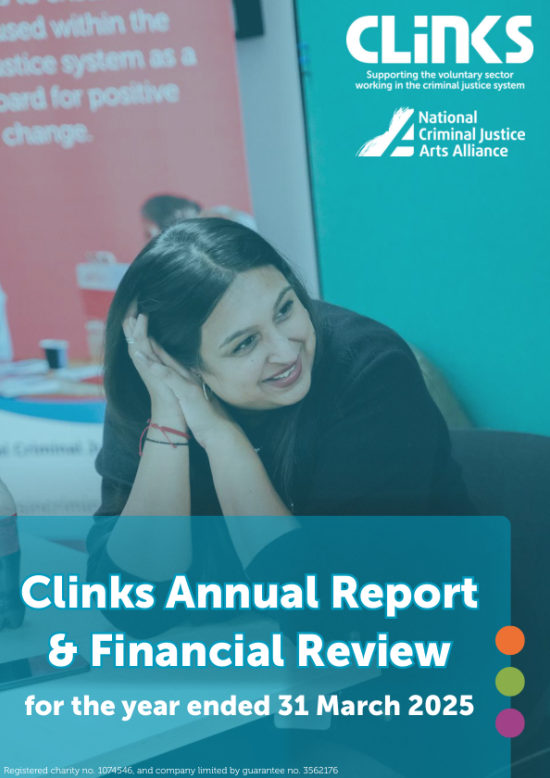
State of the Sector is 10 this year and we are pleased to see that the response rate is finally back to pre-pandemic levels. Working with our partners NVCO, this year we carried out a survey, focus groups with voluntary organisations and interviews with charitable funders and analysis of financial records submitted to the Charity Commission by ‘crime and justice’ charities. We have made the findings available online, rather than in a report, meaning we can include far more of the data, and we hope readers will find this more engaging and accessible.
Challenging Operating Environment
This year’s findings echoed those we have heard over the last few years - the voluntary sector continues to support increasing numbers of new service users, whose needs have increased and become more acute. At the same time, the sector, like many other organisations and families, has been faced with the cost-of-living pressures brought about by high levels of inflation - 78% of organisations said their running costs had increased in 2022-23, compared to the previous year, with 47% saying they had increased significantly.
Many organisations have been forced to increase staff caseloads, which creates challenges around their health and wellbeing. Funders, when asked in interviews about the health of the sector, outlined concerns about the capacity and resources to meet demand, so risking staff burnout. The economic environment is a tough one, and that looks set to continue into 2024/25, with reductions to the Ministry of Justice budget. Collectively, we need to look out for the people working and volunteering in this sector, they are an asset and provide vital services.
Preference for Grants Over Contracts
Again this year we have seen that contracts are being subsidised by alternative funding, because organisations are not able to recover the full costs of delivery. 61% of respondents said they did not achieve full cost recovery on at least some of their contracts, with one-in-ten organisations not achieving it on any. Contracts should provide full cost recovery. Commissioners should be clear about what statutory resources are funding so charitable trusts understand the space in which they can work with the voluntary sector.
Organisations were generally more positive about grant funding than contracting arrangements, and more positive about grants from charitable trusts and foundations than government grants. Grant funding is the most effective way to fund the voluntary sector. Grants are cost effective, simpler, more flexible and faster to implement than other forms of commissioning. They avoid bureaucracy, which benefits commissioners, delivery organisations and service users because they can respond to changing needs. We will continue to work with the sector to gather evidence on commissioning and grant making and work with funders to communicate the impact and look for ways to better value contracts and support the development of grant processes.
General Election 2024
With a general election in the offing some time in the near future, we asked respondents what they would like an incoming government to focus on. These were:
- Investment in prevention and rehabilitation
- Leaning on the expertise of voluntary organisations
- Empowering local organisations to deliver in their communities.
Evidence shows that investment in early intervention and rehabilitation, partnership working and strong local relationships pays dividends in the longer term. The knowledge, experience and expertise held by organisations means they are crucial partners in the design and delivery of criminal justice policy and practice and their voices must be valued and strengthened. We will work with the sector to advocate for this investment and promote the evidence of its effectiveness. Prevention and rehabilitation reduces harm, makes economic sense and is the right thing to do.
Cautious Confidence about Financial Sustainability
Finally, despite all the challenges shared with us in the research, there is cause for cautious optimism. Over half the organisations who responded to our survey said they were confident about their financial sustainability over the next two years. This was less common among smaller organisations, and also qualified in focus groups by uncertainties around the scale and capacity. There are tough times ahead, but we have seen the agility and fortitude of the sector over the last few years and we will continue to champion it’s incredible ability to transform lives.
Get in touch
We hope you find this year’s research engaging and informative, and we welcome any feedback. Contact us at policy@clinks.org
Read our State of the Sector 2023 research here
Download the executive summary here
What's new
Blogs
Anne Fox CEO of Clinks to stand down after a decade of service
Latest on X
The role is for a leader from an organisation focused on racially minoritised people, with expertise in service delivery, policy, advocacy, or related areas in criminal justice. Racial disparities are present at every CJS stage. This role ensures these voices are central in shaping policy to help address and eradicate them. Apply by Mon 18 Nov, 10am. More info: https://www.clinks.org/voluntary-community-sector/vacancies/15566 #CriminalJustice #RR3 #RacialEquity

